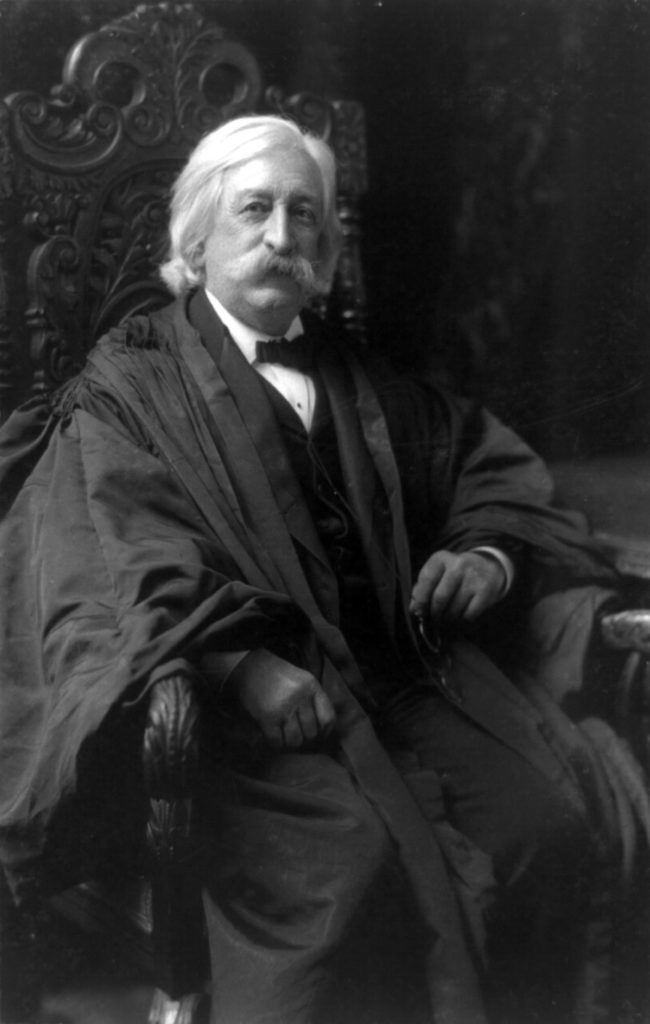Crackpot Trump judges trying to make Gilded Age Great Again

The Biden administration put a moratorium on deportations so that it could take steps to de-Nazify American immigration policy. A union-busting lawyer Trump nominated to a District Court judgeship has stopped this from going into effect based nothing that could fairly be called “legal reasoning”:
On January 20, the first day of the Biden administration, then-acting Secretary of Homeland Security David Pekoske released a memorandum temporarily pausing most deportations for 100 days while the new administration conducts a “Department-wide review of policies and practices concerning immigration enforcement.”
On January 26, a Trump appointee to a federal court in Texas handed down a temporary order blocking this pause on deportations. Then, Tuesday evening, Judge Drew Tipton handed down an opinion that effectively extends his original order for the life of the 100-day pause on deportations. The new opinion in Texas v. United States is 105 pages, and it purports to offer a legal justification for Tipton’s actions.
But Tipton’s Texas opinion is a fiasco of legal reasoning. It claims power over a case that the judicial branch has no power to hear in the first place. And it does so in contravention of numerous Supreme Court decisions — one of which states that “the Executive has discretion to abandon the endeavor” at “each stage” of the deportation process.
A crucial part of Tipton’s opinion reduces a complicated web of immigration statutes, judicial decisions, regulations, and longstanding agency practices into a hyper-literal interpretation of a single word — a word that the Supreme Court explicitly cautioned Tipton against reading in the way that he reads it.
Yet while Tipton’s actions in Texas are difficult to defend as a matter of law, it is fairly likely that his order will stand. Tipton’s latest order will appeal to the United States Court of Appeals for the Fifth Circuit, one of the most conservative courts in the country, where Republican appointees outnumber Democrats 12-5 among the court’s active judges — and then possibly to a Supreme Court where Republicans hold a 6-3 majority.
Upping the ante, J. Campbell Barker, a 40-year-old Trump appointee who was the deputy of noted crook and seditionist Ken Paxton, has attempted to unilaterally revive Fuller Court commerce clause jurisprudence in holding that the federal eviction moratorium is unconstitutional:
The opinion is a mélange of libertarian tropes, long-discarded constitutional theory, and statements that are entirely at odds with binding Supreme Court decisions.
The thrust of Barker’s Terkel opinion is that the Constitution’s commerce clause, which provides that Congress may “regulate commerce … among the several states,” is not broad enough to permit federal regulation of evictions.
But, as the Supreme Court explained in United States v. Lopez (1995), the commerce clause gives Congress broad authority to regulate the national economy — including any activity that “‘substantially affects’ interstate commerce.” Though Lopez struck down a federal law prohibiting individuals from bringing guns near school zones, the Lopez opinion emphasizes the breadth of Congress’s power to regulate the economy. “Where economic activity substantially affects interstate commerce,” Chief Justice William Rehnquist wrote for the Court, “legislation regulating that activity will be sustained.”
To get around decisions like Lopez, Barker argues that evicting someone from a home that they pay thousands of dollars a year to rent is not an “economic activity.”
“The law at issue in Lopez criminalized the possession of one’s handgun when in a covered area,” Barker wrote. “The order at issue here criminalizes the possession of one’s property when inhabited by a covered person. Neither regulated activity is economic in material respect.”
Merely quoting this argument is enough to refute it. Again, Barker claims that removing someone from a home that they rent, for money, because that individual failed to pay the agreed-upon sum of money, is not an economic activity.
But just in case it isn’t obvious that Barker is wrong, the Supreme Court’s decision in Russell v. United States (1985) directly contradicts him. Russell held that “the congressional power to regulate the class of activities that constitute the rental market for real estate includes the power to regulate individual activity within that class.”
The idea that evicting someone from a rental property isn’t a commercial activity is the kind of “logic” that lead to holdings like “a merger that would give a sugar company control of 98% of the American sugar market does not constitute interstate commerce.” But not only was Wickard v. Filburn obviously correct — despite the ridiculous libertarian mythology that has developed around the farmer who accepted generous federal subsidies for agreeing to limit his planting to 11 acres and then planted 23 acres, not very plausibly asserting he didn’t intend to sell any of the additional 239 bushels — it is the law. District Court judges are not actually permitted to ignore decades of settled precedent by fiat.
Anyway, look forward to a bunch of unqualified Trump judges holding that the Constitution enacted Ms. Ayn Rand’s Atlas Shrugged, and the Supreme Court occasionally even agreeing with them. Whee!


